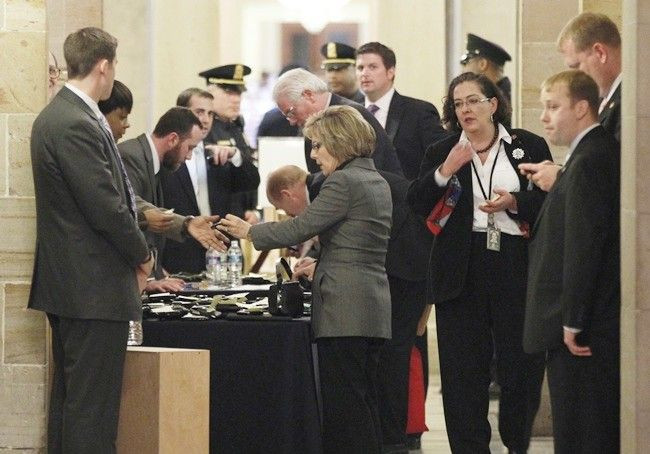What is a 'secret session' in the Senate?

Members of the U.S. Congress are convening on Monday in rare secret meeting closed to the public and media to deliberate on the START nuclear treaty presented to them by President Barack Obama.
Monday's meeting is taking place in the Old Senate Chamber in the U.S. Capitol building, which is devoid of much electronic equipment and is considered more secure for holding closed door meetings.
On their way in, Senators were asked by security personnel to surrender all electronic and recording equipment, only to receive it once the meeting is over.
Such a meeting can take place on a motion made and seconded to close the doors of the Senate, on the discussion of any business which may, in the opinion of a Senator, require secrecy, according to the Senate Committee on Rules and Administration.
The U.S. Constitution allows both the House of Representatives and Senate to create the rules of their respective chambers.
Monday's meeting, which goes by the official name of an executive session, is a creation of the U.S. Senate. It can be either closed door or open door.
The term executive refers to Senate business introduced by the President of the United States, rather than by Senators, according to a Senate glossary. Under the rules, business such as discussion of treaties and nominations presented by the President are discussed during executive sessions.
Before a closed door executive session can take place, the Senate Chamber is cleared of all persons except certain designated Senate staff, according to the rules in the Senate.
[A]ll such officers shall be sworn to secrecy, the rules note.
The penalty for disclosing the business during the session can include a Senator's expulsion from the Senate. Officers revealing secrets can also be fired and punished for contempt.
The Senate can choose to remove the veil of secrecy from any records of the meeting by lifting the injunction of secrecy.
Historically, the Senate has chosen to have closed door sessions when discussing sensitive topics.
© Copyright IBTimes 2025. All rights reserved.





















